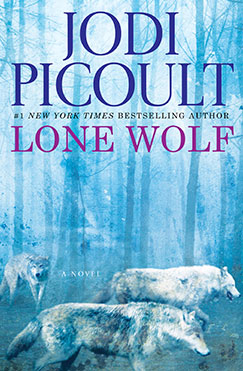 Synopsis:
Synopsis:
Luke Warren was driving his seventeen-year-old daughter, Cara, home from a party when he swerved to avoid striking a deer and lost control of his vehicle. Cara awakens to the smell of gasoline and realizes that she cannot use her right arm. Seeing that her father is unconscious, she manages to pull him from the vehicle before it erupts in flames. Emergency personnel herald her bravery and resourcefulness, telling her that she saved her father’s life.
Unfortunately, Luke sustained a catastrophic brain injury that left him comatose with an uncertain prognosis. His ex-wife, Georgie, immediately summons their oldest child, Edward, to return home from Thailand where he has been residing and teaching English for the past six years. Edward left home suddenly, without saying good-bye, and has had no contact with his father since the evening he came out to Luke. Edward has never told Georgie what transpired between Luke and Edward on that evening, but she surmises that the conversation did not go well because it was the catalyst for Edward’s departure.
A zookeeper, Luke’s life work has been the study, observation, and rearing of wolves. In fact, he loves his work so much that he spent two years away from his family, living among wolves in the wilds of Quebec where he was able to become part of the pack, even though many wildlife experts predicted that he would never come back alive. Upon his return, Luke penned an autobiography, Lone Wolf, and enjoyed a successful run on the Animal Planet network.
He also became a single parent. The strain of his absence and the unremitting pain of always holding second place in Luke’s life resulted in Georgie divorcing him. Now married to Joe Ng, an attorney, Georgie is raising twins. For the past four years, believing that the twins usurped her place in Georgie’s life, Cara has lived with Luke, functioning as his financial planner, assistant, and housekeeper.
After a week in the ICU, with no improvement in his condition, Luke’s doctors inform Cara and Edward that in all probability Luke will never make any significant strides toward recovery due to the nature of his injuries. Because of bleeding and swelling, they have already been forced to surgically remove a portion of the anterior temporal lobe of Luke’s brain. As a result, if Luke regains consciousness, he will definitely have memory loss, but the doctors cannot predict what portions of his memory have been wiped out. And even if he does emerge from his coma, he will never be able to live independently — he will always be dependent on a ventilator and severely incapacitated.
Edward is certain that his father would never want to live in a compromised state, and is ready to discontinue life-sustaining medical treatment and arrange for Luke’s viable organs to be donated. But Cara is vehemently opposed to the idea, recalling how her father would never give up on wolf puppies, willing them to survive and feeding them every two hours with eye droppers in order to ensure they thrived. She is certain that with more time, Luke will make a miraculous recovery akin to several about which she has read. Neither realizes that each is hiding a secret about his/her relationship with Luke that informs and influences their divergent views on what Luke would decide if only he could communicate his wishes.
The siblings square off in a court battle for guardianship and the right to speak for Luke.
Review:
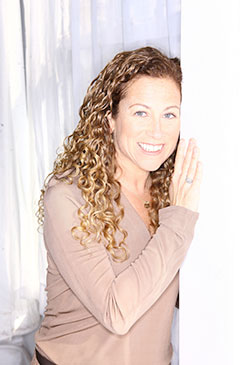
As soon as I learned that acclaimed author Jodi Picoult had penned a novel focused on the issue of end-of-life decision-making, I knew that I would be reading it as soon as it was published. I am a member of a very exclusive fraternity: I am among the handful of attorneys in this country who have successfully litigated such a case. From 1995 to 2001, I represented Florence Wendland and her daughter, Rebekah Vinson, in their quest to prevent Robert Wendland’s wife from directing that his feeding tube be removed, thereby ending his life. In August 2001, the California Supreme Court agreed with my clients, ruling in Conservatorship of Wendland that Robert’s wife had not sustained her burden of proof that Robert, who sustained an anoxic brain injury in 1993 at the age of 42, would have wanted to die by dehydration and starvation. Sadly, by the time the Court issued its precedential decision, Robert had died the previous month, ostensibly from pneumonia.
The book began for me with a premise about the right to die and what happens when you have equal competing interests trying to make a decision about the health care of a loved one who is in a vegetative state. I woke up one morning thinking about wolves and realized that wolf packs function as families. Everyone has a role, and if you act within the parameters of your role, the whole pack succeeds, and when that falls apart, so does the pack.~ Author Jodi Picoult
Picoult fans will not be disappointed with her treatment of the novel’s themes: Who should have the right to speak for and make medical treatment decisions for an incapacitated loved one? And what factors should be taken into account both in selecting the decision-maker and evaluating whether or not he/she is able to make decisions in good faith? In typical Picoult fashion, there are no heroes or villains in Lone Wolf, but there is a splintered family whose members are all damaged in their own way and keeping secrets from each other.
Picoult tells the story of Luke Warren using an inventive and extremely effective technique. By making Luke a man passionately devoted to wolves, Picoult is able to not only educate her readers about those fascinating creatures, but continually draw parallels between wolf and human behaviors. Once again, Picoult’s narration flawlessly alternates with each of her characters providing his/her own unique perspective on the action while relating their own and the family history, revealing important developments, secrets, and motivations at expertly timed intervals that keep readers not only guessing, but compelled to continue reading to learn more.
Particularly intriguing is the story of Luke, a man who abandoned his family for two full years in order to live in the wild without food or shelter in order to understand how wolves behave. Singularly consumed by his quest for knowledge about his chosen subject, Luke risked his own life, as well as the stability and well-being of his family over his wife’s vehement objections. Before leaving, he signed a brief, handwritten medical directive appointing his then-fifteen-year-old son his surrogate decision-maker in the event that the worst might come to pass. He also instructed Edward to let him go should he be devastatingly injured. But that was more than eight years earlier and for the past six years, Edward has had no relationship with Luke, factors that the court-appointed guardian and judge must take into account when formulating their recommendation and decision, respectively. That Edward has remained angry with his father in the ensuing years is beyond dispute, but is his anger fueling his desire to discontinue Luke’s life-sustaining medical treatment or are his motives actually altruistic, informed by his desire to carry out his father’s previously expressed wishes?
Do you have a strong position on how end-of-life decisions should be handled? My position is, have a conversation long before you ever find yourself in that situation, because you will be doing the greatest service to your loved ones by not making them make these decisions for you.~ Author Jodi Picoult
Cara is hiding a secret related to the auto accident, but equally convinced that her father would want them to allow him more time to recover. She scours the internet, noting every story about miracle cases in which people suddenly awoke from comas and resumed meaningful lives. Luke told her more than once that every life is deserving of a chance, and she will do anything to stop Edward from robbing Luke of his opportunity to return to them. But how far is Cara willing to go? And is she truly mature enough, at just three months shy of her eighteenth birthday, to appreciate and shoulder the burden of making such a momentous decision about her father’s treatment and future?
Cases like Conservatorship of Wendland stand for one all-important proposition: No family should ever find its members pitted against each other in a life-and-death battle for control of another’s destiny. No one, including the parties, lawyers, guardian, judges and justices, and the patient’s treatment team, emerges from such a fight unscathed. It is imperative that family members discuss their views on the question of when the delivery of medical treatment serves only to prolong a life that should otherwise be allowed to reach a dignified end, what quality of life is acceptable, and who should make decisions, based upon sound medical advice, when they are no longer capable of voicing their preferences. Those desires should be expressed unambiguously in writing, and communicated to loved ones, treating physicians, and spiritual advisers.
In Lone Wolf, Picoult once again accomplishes exactly what her fans have come to expect: she sensitively and entertainingly looks at the issue from many angles, allowing her readers to learn about the topic and examine it for themselves without ever becoming preachy or judgmental. Picoult includes surprising plot twists that keep readers guessing right up to the very end, and does not shy away from her story, allowing it to reach a well-rationed conclusion, even though it may not be one with which all readers agree. Most importantly, Lone Wolf offers readers insight into the topic of end-of-life decision-making and the opportunity to begin that critical dialogue with loved ones. (It would make an excellent book club selection.) For that reason alone, were the book not particularly well-written, I would recommend it. But that is not the case. With believable and empathetic characters, crisply realistic dialogue, deft pacing, and command of the technical aspects of the topics evidencing thorough research, Lone Wolf marks another milestone in contemporary literature from one of America’s most popular authors. I highly recommend Lone Wolf.
In memory of my brave client, Florence Wendland, who set an example of unconditional love and maternal devotion each of the days that we fought together to spare her son, Robert, from dying in a manner that the evidence showed he never would have wanted, I provided one copy of Lone Wolf to a subscriber. Thanks to all who participated and congratulations to Sherry Vargas Bercu!

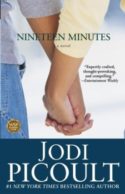



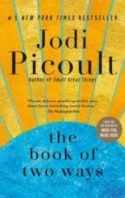
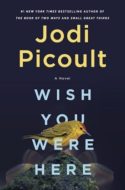



23 Comments
Terrific review. I loved this story as well. I especially loved Luke’s story and learning so much about wolf behavior.
This is a fascinating story that I’d love to read! Thanks for the chance to win this awesome book.
thanks for featuring this intriguing and special book.
Even before i realized it was a novel Jodi had penned, i knew i wanted to read it so badly. And after reading your amazing review, i want to have it, not just read it! i know friends who would love it.Thanks for your great review. i loved that you added your own experiences into this one and though the review was fairly long, very interesting. Thanks for the opportunity to win
A great review for an amazing novel. Many thanks.
What a great review and thank you for sharing. Looking forward to reading the book.
Enough said the book is by Jodi Picoult:)
Thanks for your review. Picoult is one of my favorite authors b/c she writes about current and relevant social issues in an educational yet entertaining way.
I have read 3 of her books so far:
. Nineteen Minutes
. The Pact
, My Sister’s Keeper
I own several others and have seen the movie versions of THE PACT and PLAIN TRUTH.
This sounds fantastic! Thanks for the chance to win!
I just love everything Jodi Picoult writes! Thanks for the giveaway!
would love to win this – thanks
Hi! Sounds like a great book. Can’t wait to read it. Thank you for doing this giveaway for us. 🙂
This sounds like a great book!
Thanks
Oh my! With a thorough review and recommendation like you’ve written – how could anyone resist this book! I’d love to read this story. Thank you for the opportunity to win it.
I really like the storyline for this book, and I’d enjoy reading it. Thanks for this chance.
This book sounds like an emotionally intense read…
I love Jodi Picoult stories.
It looks like an interesting book.
I love your reviews, the best I’ve found so far.
This sounds really good and I have yet to read a Jodi Picoult book but have heard great things! Thanks for the giveaway
I want to see how Jodi Picoult handles this controversational subject. Many years ago, the doctors asked both me and my step mother the same question as in the book. He had had a terrible stroke and was in a coma. We decided differently and then she changed her mind. She never forgave me for my decision. I knew my father so throughly that I know that he would have chosen the same for me had I had been in the coma. It would benefical for everyone to think about this question now rather when they are grieving.
I would love to read this book. What a very hard decision that would be to make. (Which is why everyone should have their wishes in writing, so no one has else has to make it) I have enjoyed reading her books in the past, and I do agree that she would address this issue very well.I would love to read this book. What a very hard decision that would be to make. I have enjoyed reading her books in the past, and I do agree that she would address this issue very well.
Pingback: Saturday Review of Books: March 10, 2012 | Semicolon